Victoria-based student running a solo marathon to raise money for charities in one of the areas hit hardest by COVID-19
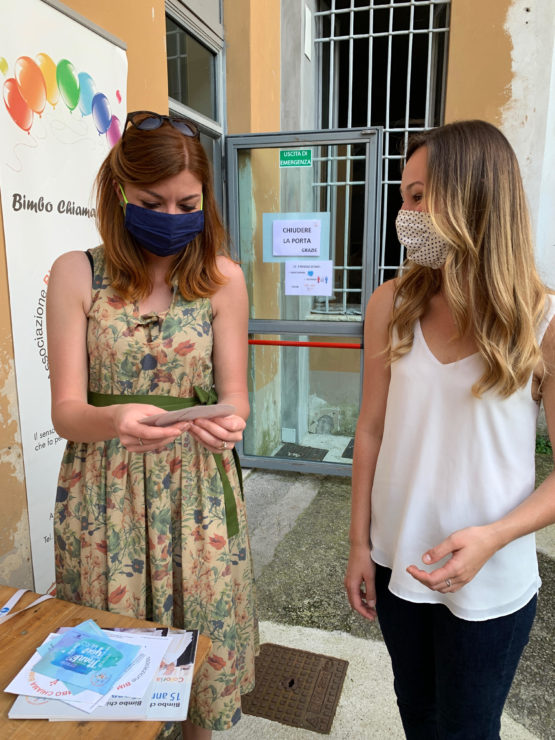
Here Valeria is explaining the work that they do to me outside of their main office, photo provided.
Taelor Lay remembers the day her Northern Italian city went into lockdown — February 22.
It was a Saturday. Before the coronavirus caused people in North America or Europe to truly panic, and before COVID-19 was declared a global pandemic. Before people thought twice about shaking someone’s hand, saw plexiglass placed in front of cashiers at grocery stores, or maintained a two-metre distance from one another.
As someone who grew up dancing — competing in ballet, jazz, and contemporary and lyrical performance since she was six years old — being physically active has always been important to Lay. Along with a sense of community and togetherness, which has followed her from Victoria to Brescia — the Italian city where she’s currently studying abroad.
Lay ran a half-marathon in her hometown of Victoria after a work colleague told her she was training for the race. On her way to the city of Brescia in the Lombardy region last August to begin her year abroad, she sat beside a traveller on a flight who was running the Milan marathon. The traveller said it would be her first marathon, and asked Lay to train with her.
“‘Neither of us will be good at it so it will be perfect,’” Lay says, while laughing as she recollects what the traveller told her. “So I thought, ‘perfect, there will be someone else to do a marathon really poorly with me.’ I’ve always known I wanted to do one, so I thought, ‘this is my chance’.”
As Lay began to train with her new friend, she started to settle in and fell in love with the social and celebratory Italian lifestyle. From going to cafés or bars to chat with friends, she noticed herself celebrating even the tiniest things of her everyday life.
Most of that culture was uprooted at the end of February as Italy, in particular the northern parts of the country, became the epicentre of the COVID-19 outbreak.
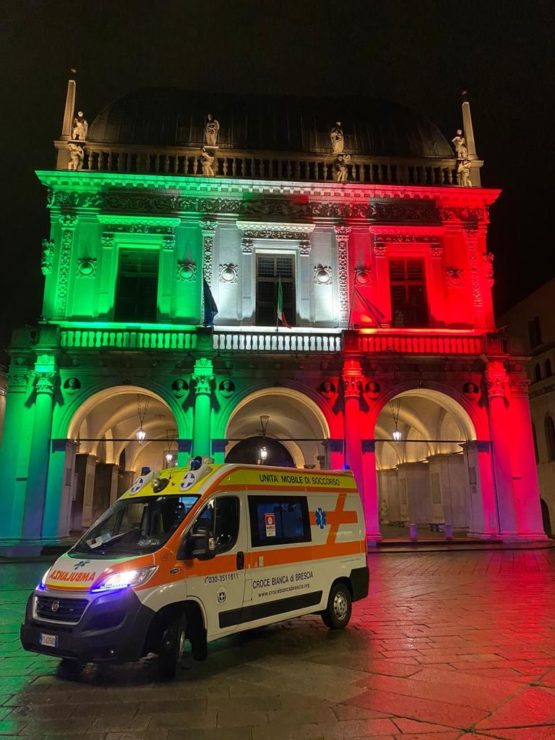
News of patients having difficulty breathing and dying spread across the world. Shops and businesses closed, government-mandated quarantine rules went into effect, and the social interaction of going to cafés or restaurants in Italy was altered.
Lay went into lockdown with her host family, not knowing how her classes would be impacted or whether she could find a new daily outlet that running had provided — as a physical release and social event with her friend from the plane — or how to help.
Italian medical school students were pushed to the front lines. Doctors from across the world came to help. The local Brescia newspaper, a city which Lay says has a population comparable to Victoria, had seven pages of obituaries.
But even as the deaths piled up and much of the Western world reacted in shock to Italy’s devastation, Lay kept on hearing the phrase “tutto andrà bene” in the community.
She noticed neighbors checking in with each other, not only their loved ones, and maintaining a steadfast belief in that motto.
“It is not an ‘I’ but an ‘us’ mentality here,” says Lay. “Even in their darkest moments, the people of Lombardy remain faithful, hopeful for a brighter tomorrow.”
“Tutto andrà bene.” All will be well.
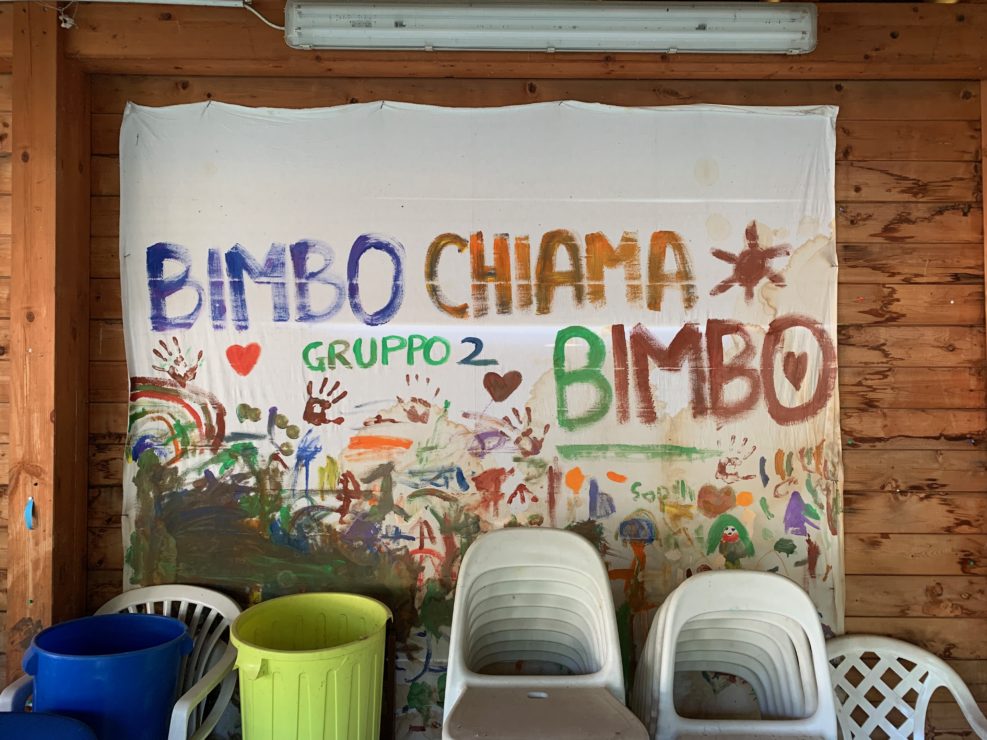
Lately, Lay has been listening to a lot of Drake.
She doesn’t go running without listening either to a song or podcast, and sees a parallel between her love of running and her music and dance background.
“I appreciate them for the same reason, which is because I love music and I love getting lost in a good song and a good playlist or podcast. I really just appreciate that time to myself, so in the end dance and running have done the same thing for me.”
Lay is a student at Royal Roads University, and pursuing a degree in Professional Communications and Journalism. When she started work and university full-time, Lay decided she needed a second outlet that was more accessible to help her balance her schedule, and decided to start running.
However, she didn’t always enjoy running as much as she liked to dance. She actually hated it.
But she put her foot down and wasn’t going to quit.
“I thought: ‘Taelor, that’s it,’ you’re going to become a couch potato or you’re going to start running,” says Lay.
And that is when her co-worker mentioned a local race, the Hypothermic Half Marathon, that takes place in February in North Saanich. Lay competed in that race for three straight years.
“Signing up for that first half marathon, and getting into a competition with myself is what really got me into running … it’s been with me since just as an outlet.”
In August, Lay moved to Brescia — a city about an hour outside of Milan — to study German and Italian at the Istituto di Istruzione Superiore Moretto.
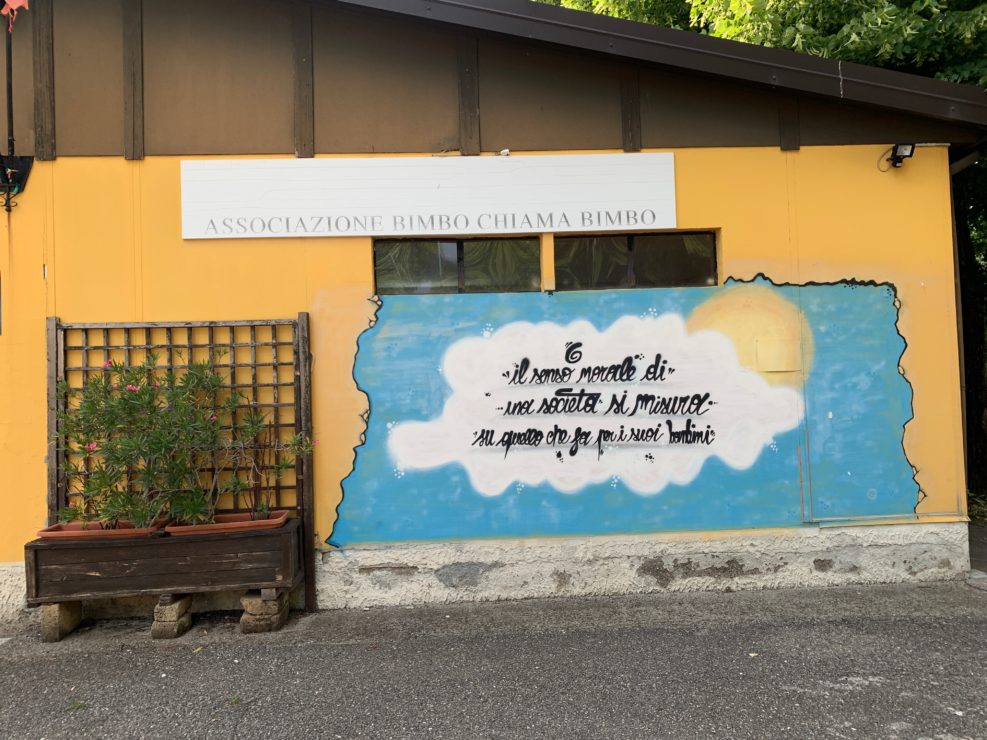
As cases of COVID-19 gripped the Lombardy region, Lay made a news appearance on Global News in March to describe how the lockdown impacted her daily life in Italy.
She plans on staying in Brescia until October or even January of next year, and has continued to live with a host family. Lay says she has really bonded with them and although she admits her Italian isn’t at the speaking level she wants it to be, they have offered support during the pandemic for which she’s been grateful.
“My host family and my friends here have been the loveliest group of people who you could want to be stuck at home with for two months.”
The family, along with a promise from the Italian government to offer free healthcare for all citizens including foreigners, are two reasons Lay explains why she didn’t hesitate to stay in Italy as the pandemic raged on.
For about two months in quarantine, Lay wasn’t allowed to go out for walks or runs to train for the Milan marathon. But instead of being discouraged about not racing, she was much more devastated to see so much loss and death from those living in a city she had grown to love as a second home.
In a FaceTime call in the middle of May, with the blue skies in the background fading and darkness enveloping Lay and the city of Brescia, it’s eerily quiet and there’s a longing look on Lay’s face as she thinks back to how the pandemic gripped Italy in February and March.
“I think to be in Italy at that time was sad and then to be in the hardest hit region of Italy… ” she says, her voice trailing off, before stopping to gather her thoughts and look around her host family’s home. “It was just sad, I want to be able to help.”
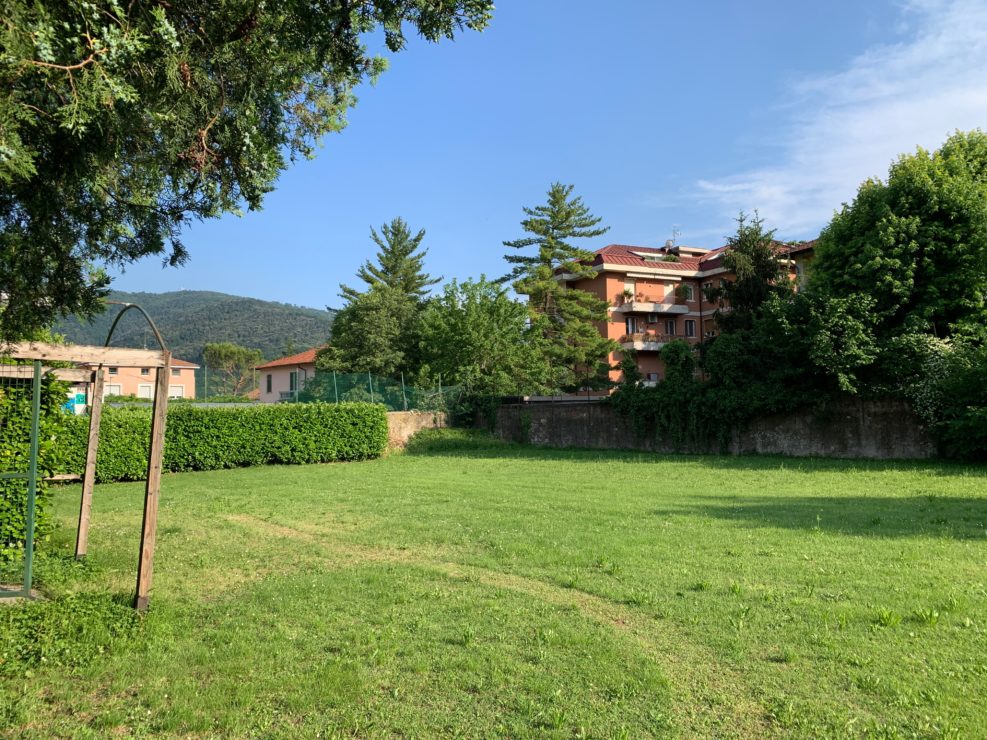
To take her mind off the despair, Lay started to write and struggled with grief while thinking of ways to help others in need.
She intended on self-publishing a short novella in support of a pair of local charities on the front lines. But after some time, and as she sat on the manuscript, she pondered other ideas to raise awareness and funds for the struggle so many are going through in Northern Italy. Ultimately, she decided to stage a solo marathon to help the people of Lombardy.
“I thought it would be a good way to build some momentum [and] inspire other people to do the same — hopefully if they want to run a solo 10k, half marathon, full marathon in support of charities that they really appreciate,” says Lay. “It’s a really accessible thing to do.”
Lay started a GoFundMe account for donations that will be split between the Croce Bianca Brescia and Bimbo Chiama Bimbo charities. Croce Bianca is a non-profit that hosts volunteers who provide medical and food services for community members, and Bimbo Chiama provides food, education, and parenting resources to families.
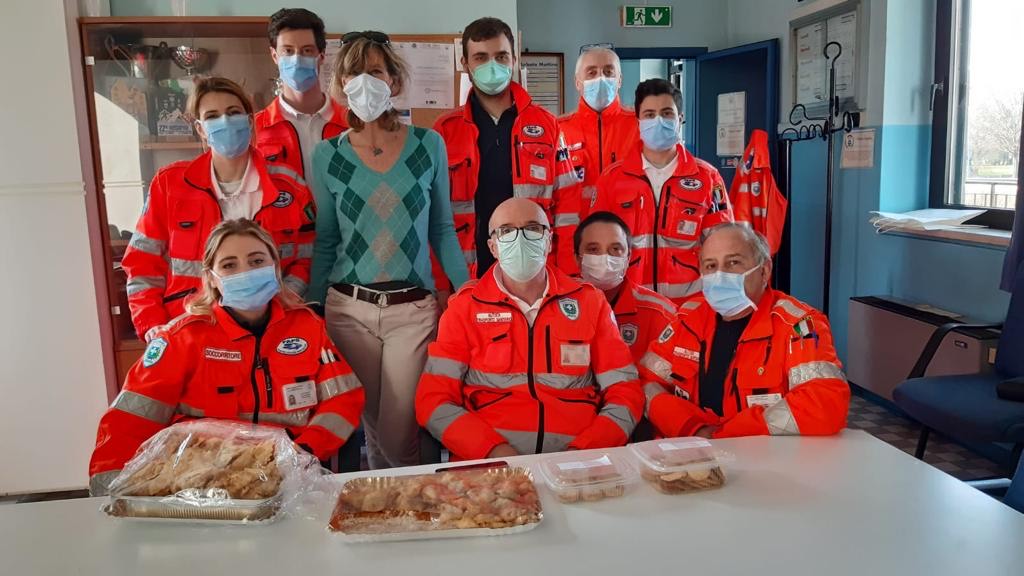
She chose those two charities specifically because they are two major local support systems for some of the most vulnerable people — such as families with young children who may be financially struggling and elderly people who are at high risk for COVID-19.
Running a normal marathon is hard enough, but running one alone can be even more difficult — not having a group of people to chase, or competitors alongside you to offer support.
When she normally trains for a race, Lay will dream of a steaming hot plate of pancakes after a run, but in preparation for this race — whether it’s in training, or the halfway point of the solo marathon — Lay says she will focus on the charities, which serve as the pinnacles of support for one of the hardest hit regions of COVID-19 in the world.
“For me, it’s been such a huge weight off my chest to feel like I can help people, and to feel like I can help these charities,” she says. “These are the charities on which this really hard hit region of Italy… really relies on. These are the backbone supports of this area, so 110 per cent, I would not be a crazy person running a marathon alone unless I was desperate to support these charities.”
*
Taelor Lay remembers the day she could go outside again for a walk or run.
It was May 4. A little over two months before she plans on running her solo marathon on July 26.
After being cooped up inside during the near two-month lockdown, Lay believes she’s maintained a certain level of fitness, but recognizes that a lot of the momentum she built up during the winter in preparation for the Milan marathon is gone, and that she is forced to start rebuilding her fitness almost from scratch.
Lay admits she is “jumping into the deep end” in terms of training for this solo race, but she plans on running 5k every day at different paces to replicate interval training before slowly increasing the distance and runs as she gets further into the summer.
“I’m listening to my body, because what I don’t want to do is sign up for this and then injure myself in the first few weeks,” says Lay, who has spoken with some of her colleagues she worked with in Victoria for advice on training.
For the course of her solo marathon, she is contemplating running the circumference of Brescia four times (which is 10km) and adding the final 2.2km somewhere at the end.
Lay creates a new playlist around every four days or so for running, and the music depends largely on her mood. So what she plans on listening to during her solo marathon attempt is undecided, but one thing is shaping up to be for certain, it probably won’t be music.
“I think it will be a series of podcasts to be honest,” she says with a laugh over the phone. “I think it will be podcasts that I’m really interested in, in the upcoming weeks and then I won’t let myself listen to them until race day.”
On the day of July 26, as she clicks away at the kilometres in her second home for charity, with the sound of a podcast in her ears, there’s a good chance she will look into the faces of strangers — those who have had their lives altered in a country known for its social behaviour — and see resilient people, who even in the darkest moments of this pandemic, never lost faith that life will return to normal once again.
“Tutto andrà bene.”
You can follow Taelor’s training and her race at www.taelorlay.com and donate to the GoFundMe here.







